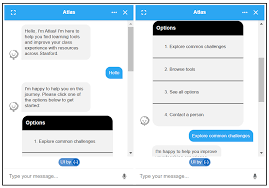Tech support scams have been a persistent threat for years, but a newer variant known as the Phantom Hacker scam is quickly rising in prevalence. Since 2023, this scheme has defrauded victims, especially targeting older Americans, to the tune of over $500 million.

What sets the Phantom Hacker scam apart is its three meticulously planned phases. The attackers employ AI-powered social engineering tactics that make their approach exceptionally deceptive and difficult to detect.
In the first phase, scammers often disguise their identity by using caller ID spoofing to appear as legitimate tech support representatives. They then follow up with convincing AI-generated voices, enhancing their credibility and making victims more susceptible to manipulation.

To protect yourself from falling victim to this sophisticated scam, it’s crucial to verify any unsolicited tech support calls. Always hang up and contact official customer service numbers directly if you suspect a scam. Staying informed and cautious can significantly reduce your risk of being targeted by these fraudulent schemes.
The FBI has issued warnings about a disturbing new wave of scams, starting with what is known as the tech support impostor phase. It often begins innocently enough—perhaps a seemingly routine call, an alarming email, or even a pop-up message flashing across your computer screen. The message usually carries an urgent tone, warning you that your device has been compromised and urging you to reach out to a specific customer support number for immediate assistance.

Curiosity is piqued, and you may feel compelled to call the number provided. On the other end, a scammer masquerading as a tech support agent greets you with a reassuring voice, claiming that hackers have targeted your accounts and that your personal information is at serious risk.
In an effort to help you, they instruct you to download remote access software, which grants them control over your computer. As they navigate your system under the guise of scanning for threats, they begin to extract sensitive information from you.
Unbeknownst to you, this is merely the beginning of a well-orchestrated scheme designed to infiltrate your financial accounts. With every click and keystroke, you unwittingly set the stage for the next phase of their deceitful plan.
As the narrative unfolds, we enter a treacherous chapter known as the financial institution impostor phase. Here, another con artist emerges, masquerading as a representative from your bank or investment firm. With a facade of urgency, they reach out to you, claiming that a foreign hacker has breached your accounts. Their alarming advice? To transfer your funds into a “secure” government-protected account. They may suggest methods such as wire transfers, cryptocurrency transactions, or cash deposits, all while emphasizing the importance of keeping this transaction under wraps for your own security.

In the subsequent act of this deceitful saga, we witness the final phase: the U.S. government impostor stage. A third scammer steps into the spotlight, impersonating a federal official—often someone from the Federal Reserve. This individual employs high-pressure tactics, demanding that you act swiftly. Should you begin to harbour doubts about their intentions, they are prepared with a counterfeit email or document that appears official and credible, designed to dispel any lingering scepticism about the legitimacy of the transfer. Tragically, by the time victims awaken to the reality of their situation, their money has vanished—frequently sent to foreign lands where U.S. authorities cannot reach it.

In this age of advanced technology, we must remain vigilant against threats like the Phantom Hacker scam. The rise of artificial intelligence has empowered these scams, making them increasingly deceptive and difficult to detect. Scammers now harness AI-driven chatbots to automate their schemes, eliminating the need for human operators. With responses that sound both natural and persuasive, these AI tools enhance the effectiveness of their fraudulent activities, posing an even greater risk to unsuspecting individuals.
So, take heed: don’t allow these digital phantoms to siphon away your hard-earned money.
In an age of technology continuing to evolve, the rise of AI-generated deepfake voices has opened up new avenues for deception. Scammers can now impersonate bank officials and government representatives with alarming ease. All it takes is a brief audio sample—perhaps a snippet from a public speech or a recorded conversation—and these criminals can clone a voice that sounds strikingly authentic.

Imagine receiving a phone call that appears to be from your bank manager, discussing an urgent matter regarding your account. The voice is so convincing that it sends shivers down your spine. In that moment, trust is placed in the words spoken, leading victims to divulge sensitive information without a second thought.
But the deception doesn’t stop there. Email scams have also taken on a more sophisticated guise. Using advanced AI tools, scammers craft messages that perfectly mimic the tone and style of official communications. For example, a victim might open an email that looks like it’s from the Federal Reserve, complete with official logos and formatting.

Even more alarming, these fraudsters can generate fake documents adorned with realistic letterheads. When presented with such polished materials, it’s easy to see how individuals could be swayed into believing the scam is legitimate. In this digital age, the line between reality and fabrication is becoming increasingly blurred, leaving many vulnerable to manipulation.
Maxthon
In the ever-evolving landscape of technology, the digital realm resembles an exhilarating adventure. Navigating this vast expanse can feel like setting sail into uncharted waters, filled with both exciting opportunities and unforeseen challenges. In such a dynamic environment, choosing the right web browser is more than just a preference; it’s a pivotal choice that influences every aspect of your online experience.

Enter Maxthon: Your Reliable Companion for Digital Exploration. This innovative browser is expertly crafted to harmonize with Windows 11, ensuring a smooth and user-friendly experience.
But what truly sets Maxthon apart? With the introduction of Maxthon 6, users are greeted with cutting-edge features enhanced by blockchain technology. This integration not only boosts performance but also fortifies security.
In an age where our online interactions shape our identities, prioritizing privacy and protection is crucial. Maxthon stands out as a steadfast partner, committed to safeguarding your digital footprint.
With Maxthon, you can venture into the online world with confidence, knowing that your security is in good hands. Embrace the journey ahead—explore, discover, and connect, all while enjoying peace of mind.
